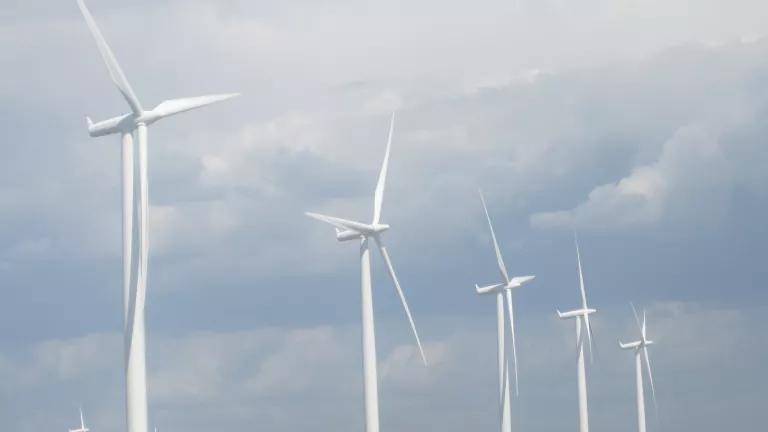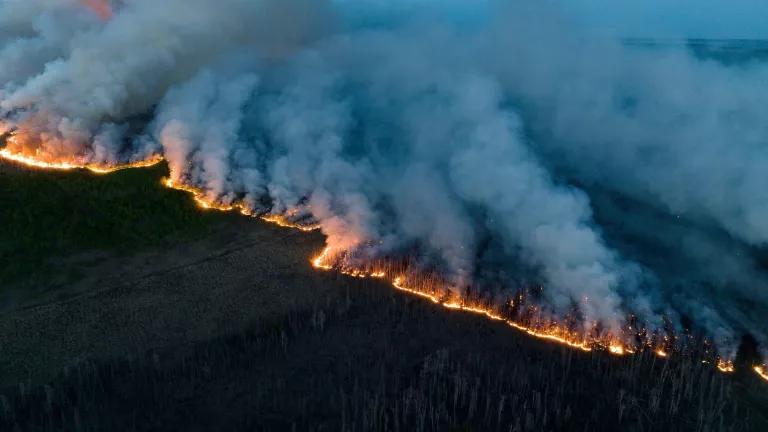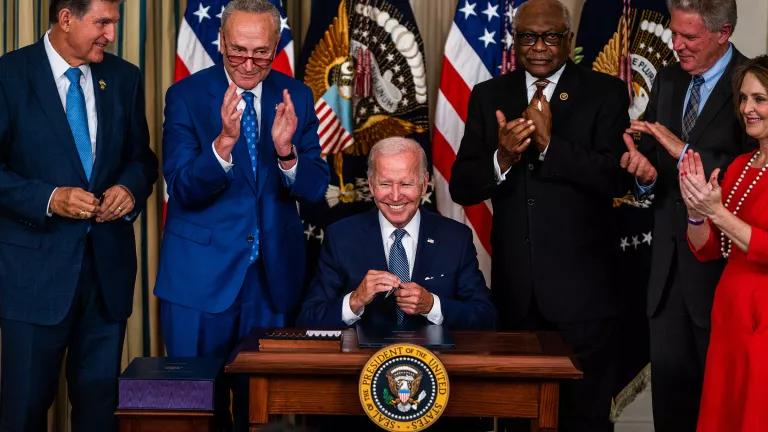Climate Crisis: Senate Moves to Protect Workers from Heat

Senators Kamala Harris (D-CA) and Sherrod Brown (D-OH) just introduced the “Asunción Valdivia Heat Illness and Fatality Prevention Act of 2020.” The bill, which comes on the heels of record-breaking heat across the Southwest, directs the U.S. Occupational Safety and Health Administration (OSHA) to develop a comprehensive, enforceable standard to protect outdoor and indoor workers from the health harms of extreme heat.
Extreme heat isn’t a hypothetical danger to workers: It’s harming them now. According to data from the Bureau of Labor Statistics (BLS), heat killed more than 300 workers and sickened or injured nearly 28,500 others from 2011 to 2018. Heat-health statistics tend to be extremely conservative, given the multitude of heat-related illnesses, inconsistent reporting practices by employers, fear of retaliation or discrimination by immigrant workers, and many other factors. Unfortunately, there is no federal standard specific to heat, leaving OSHA to use the vague and difficult-to-enforce General Duty Clause to ensure employers provide heat-protective basics of shade, rest, and water.
Increasingly hotter working conditions fueled by climate change are a common theme of the first hand stories in NRDC’s recent report about worker health and safety. Those working indoors and outdoors told us how hard their jobs are in the more severe heat and puts them and their colleagues at risk.

This new commonsense heat safety bill and the original 2019 bill in the U.S. House is supported so far by about 50 groups, including NRDC, advocating for labor, faith, health, immigration justice, and the environment. Many of their constituents and members, including farm, warehouse, and poultry workers, are among the most vulnerable to heat. They bear witness to the toll of heat-related losses in wages and family members—a toll that can’t be understood just by looking at BLS or other government databases.
Many of the supportive groups have also seen workers struggle to get the protections they need during the COVID-19 pandemic. In the absence of an enforceable COVID-19 standard from OSHA, many employers have failed to provide workers with protective equipment, issued conflicting instructions to those potentially exposed to the virus, and reportedly fired others for taking time off to quarantine themselves.
The Asunción Valdivia Heat Illness and Fatality Prevention Act has the potential to protect vulnerable workers as the climate crisis deepens and deadly heat waves become more frequent and severe. Crucially, the legislation includes whistleblower protection for those who speak up about unsafe work practices and workplaces.
America’s thousands of heat illnesses and deaths are preventable, and today’s legislation gives workers, affiliated organizations, and health and safety regulators an important tool to do this.



